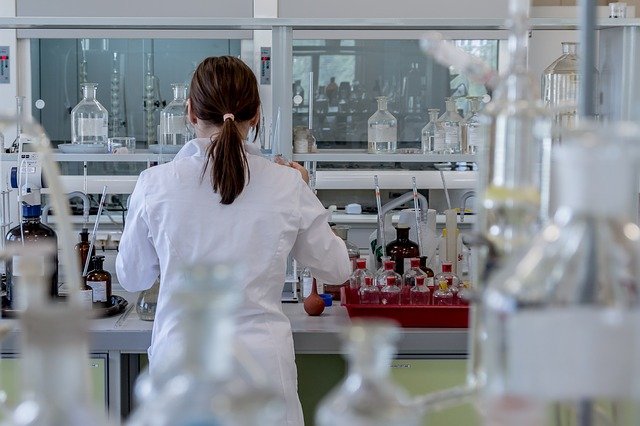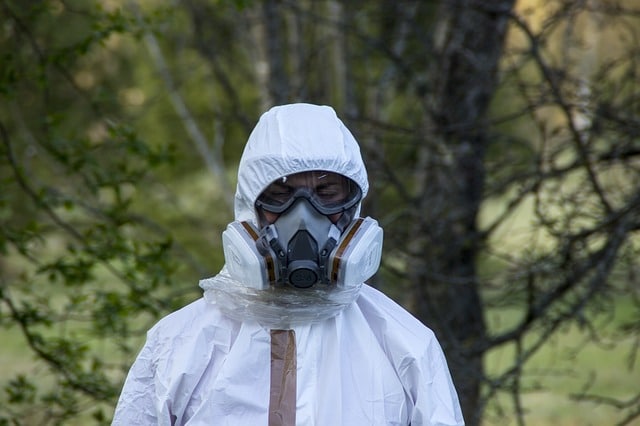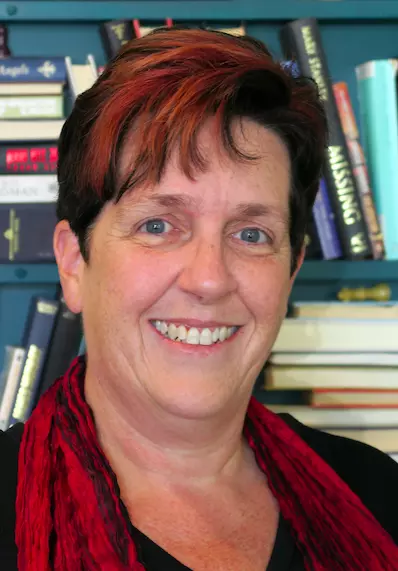Did you know:
- there is enough carbon in the human body to provide "lead" (actually, graphite) for 9,000 pencils?
- every hydrogen atom in your body is around 13.5 billion years old because they were created when the universe began?
- glass is a liquid, not a solid; it just flows very, very slowly?
Chemistry is a science full of fun and interesting trivia — and is so much more than the Periodic Table (which, incidentally, contains every letter of the English alphabet except J). If you have been a student of chemistry, studying science throughout high school and into university, then you likely know all this (and more) already.
Perhaps you'd like to share with others how amazing this science is — as a chemistry tutor.
Tutoring chemistry is a great way to indulge your passion for the subject while earning some extra cash and perhaps learning even more along the way.
But, how do you become a tutor?
Where can you find students who need a chemistry tutor?
And, what do you need to do to give lessons that are successful and will ensure your students come back?
Let's take a look at what you need to do to start tutoring in chemistry.

How Do I Become a Tutor?
First ...
The first thing to think about when you want to become a tutor is whether or not you have the right qualifications and teaching or tutoring experience.
In Australia, there is no legal requirement for tutors to have a teaching qualification, although many tutoring agencies look more favourably upon tutors who do have these proven skills. However, don't let a lack of tutoring experience stop you — the best teachers and tutors have passion and great enthusiasm for their tutoring subject and an innate ability to share this enthusiasm to support students as they learn.

While passion is important and will help with student motivation, no amount of enthusiasm for chemistry can replace a solid grounding of basic and advanced chemistry concepts.
If you excelled in chemistry during high school, you could offer to tutor chemistry students who are in Year 7 through to Year 12. A tutor with recent high school chemistry curriculum experience can be a great asset for high school students who need help with exam preparation, study skills and confidence as they approach their HSC, VCE or other ATAR exam periods.
However, if you want to tutor more widely, beyond high school students, you will need to have a university degree in chemistry yourself.
Experience in chemistry-related jobs, including lab work, is also a great way to gain work as a chemistry tutor. These jobs do not need to be paid — they might have been an internship or a volunteer role in research or as a chemistry lab assistant working with chemistry teachers.
Next ...
A tutor needs students; that much is obvious. So, once you've decided to push forward with this part-time (or full-time) job, you need to work out where to find your students.
First, decide what level you want to teach — high school or university, children or adults?
Then, work out where your students hang out. Where are they most likely to see your ads for your tutoring services? (We'll discuss this further below.)
Finally ...
Once you have your student list (or preferably before this), work out how you are going to teach. How will you deliver your lessons — online or in-person? Will you offer private lessons or group lessons? What will your focus be — revision, catch-up, advanced learning, study and exam skills or practical application of chemistry concepts? Do you have the resources you need to teach? (All of this is also elaborated on below.)
Other things tutors need to work out include how much they will charge for lessons and what their tutoring schedule will look like — otherwise, you're set and ready to start tutoring.
Where Do I Find Students?
Every student, at some point in their education, needs help with something. Most of the time, they will access this help directly from their teachers or from their peers. They may also access a school study group or have a parent or family friend to help them and answer questions. If they come from a non-English speaking background, they may need assistance with reading, essay writing or oral presentations, rather than the chemistry itself. However, students often seek more structured, longer-term help by way of tutoring — and this is where you come in.
The tutoring industry in Australia has grown immensely over the last ten or so years with countless tutoring agencies and private tutors throughout Australia. If you check online, you will bring up pages of tutoring agencies and platforms that offer tutoring, particularly in the subject areas of maths, English and science — physics, biology and ... chemistry.
There are a lot of tutors out there. But there are also a lot of students — chemistry students — who are looking for short-term help, regular lessons and ongoing support as they head towards Year 12 (and their HSC exam, VCE exam or other ATAR requirements) or navigate their university degree.

It's important tutors know where to find their students, especially in the early days of starting a tutoring business. Some of the places tutors should be investing their time in include:
- social media — particularly the platforms where your student demographic hang out
- online job and sales sites, like Gumtree Australia or your local 'buy, swap and sell' online group
- university libraries, student services and science faculties
- high school newsletters and noticeboards
- liaising with teachers and science teachers groups
- community noticeboards, such as those found in youth centres, public libraries and shopping malls.
You may also decide to list yourself on one of the many online tutoring platforms. Many of these online platforms act to set your prices and match you up with students, however, the Superprof platform leaves it to the student and tutor to negotiate all the details (and doesn't charge tutors a commission!)
Remember the power of word-of-mouth advertising as well. Ask your teachers, family, friends and past or current students to spread the word. Sometimes a personal recommendation is the best advertisement.
What Resources Do I Need to Give Lessons?
As a chemistry tutor, you will usually work outside of the formal class environment, although tutors are sometimes employed by a private school or institution for special lessons or in a support role for a specific student. Generally speaking, however, you will work for yourself, which means you need to have the necessary teaching and learning resources for each of your lessons.
A must-have for chemistry tutors who are tutoring online, whether to private students or a group, is good quality computer hardware — computer or laptop, microphone and headphones. Online private tutors also need stable and preferably high-speed internet. A Zoom (or similar) account with access to teaching tools, like an online whiteboard, is also handy, as is the ability to record each class or individual lessons for students if needed.
Content resources are also essential. Ensuring you are familiar with the relevant curriculum for your student's year, or the syllabus or university course outline, is a must. The NSW P–10 curriculum, for example, is available online and tutors should always be referring to the Australian Curriculum when teaching students in primary school or Years 7 to 10. For senior secondary school students (Year 11 and Year 12), class outlines are usually available on school websites and you can also access sample exam papers with a quick search.
Interactive online teaching tools (such as ChemDraw, Paint and others found through Scootle) go a long way to making your lessons relevant and engaging. All students — whether they are children, high school age or adult — learn by making connections. Any visuals you can access, as well as analogies and your own stories, can help with this.

Of course, there is the practical side of chemistry that needs to be considered as well. As a private tutor, it is unlikely you will be able to access the equipment and materials needed to conduct lab-like experiments. However, with a bit of creativity and lateral thinking, along with your knowledge of chemistry, you can still give lessons that allow your students to make connections through practical experience.
Another way to engage your students in chemistry is to incorporate information about the wide array of career paths where knowledge of chemistry is an advantage. You might even visit different work sites with your student or invite a professional chemist to answer any questions your students have.
For people who love chemistry, the joy of sharing your knowledge is just one of the many benefits of being a chemistry tutor.
Summarise with AI:











